|
I want to talk about something for which there is unfortunately only a picture in my mind's eye.
While going to sleep, whether before or after that murky demarcation, I do not know, I saw a beautiful woman on the other side of a window, something like a friend's living room window to be exact. The woman was smiling. I acknowledged her, and then I realized I actually loved her very much, and drew my fascination directly at/toward her. She was me! She smiled at me, and with an explosion of recognition of my self, I awoke sharply, heavily breathing, eyes straight toward the wall, wanting so very much more than anything else to see her again, to know her more, to learn more from her. Who is she/me? That is all I want to know anymore, and this dream/vision gave me my clearest information to date of the essential question, who am I? Also, the peace of knowing a bit of the answer, even of a partial detail, cannot be overstated. Being in the mere memory of it has brought me bliss, contentment, and completion all morning, bliss for which there are not words, and so I bring forward the idea of svastha both to you and to me: the importance of being “situated in the Self”. Smrtr labdhaa. Memory regained. Know thyself. It is all you really have to do.
0 Comments
In a previous post, I showed that Reddit entries were slightly, but significantly, more likely to contain spelling errors and other unusual word choices. I had not discounted the most common slang and swear words, which one could say contain proper meaning and are not misspelled even while not in the dictionary. In this post, I will account for them. Dropping common slang and swear words ("ok", "lol", "bs", "gg", "awol", "4Chan", "nsfl", "nsfw", "ama", "s%#&t*", "f&%k*", etc. and ":)", ":(", ";)", ";(", ":/", ":\", etc., and their main capitalization variants) as well as links, the difference between Mercury Retrograde (MR) and Non Mercury Retrograde (NMR) in incidence of word spelling errors divided by entry word length increased to 2.14%. Moreover, this difference of 2.14% is quite statistically significant with an ANOVA p-value for equality at 6.4x10^-14. The 95% mean confidence interval for NMR is ~{0.0528, 0.0531} and for MR it is ~{0.540 , 0.542}. Here is the histogram showing the separation of MR (yellow) from NMR (blue) as well as the quartile-quartile plot comparing MR to NMR upon removing slang, emojis, links, and non-English entries. Again, the difference could still be accounted for by other strange words, like unusual last names, that suddenly became fashionable in the MR period, but keep in mind that these results are from scanning evenly across 53 million entries. That is something like two thousand front page posts with full comments per day in both NMR and MR. This huge number is likely to dilute away any such fashionable blip with a similarly fashionable blip in NMR, although more data is always better. (Looking at all or at least more MRs and NMRs would be nice, but this is all the data I have right now.) [Edited: If you would like to see such a study across many Mercury retrograde seasons, see here.] To give you a sense of perspective, the average number of words in an entry only increased by 0.4% during MR despite wide variation, and that increase is not statistically significant. So, again I say, a >2% increase is huge, a statistically and culturally significant result. Consider this: if you are just 2 percent more likely to make a mistake in some small thing during Mercury Retrograde, but you build up on hundreds (if not thousands) of those small things per day, that effectively implies that your rate of making some bigger mistake skyrockets. For example, if you do 10 related small things in a MR day and each step is two percent more likely to cause an error than in NMR, then you are at least 21 percent more likely to commit a compounded error that day, and within the three weeks of MR, you are almost sure to make at least four such serious errors. The Mathematica notebook is available for download.
Postscript: Re-running the file but also dropping "OMG" and "(͡ ͜ºʖ ͡º)" increased the difference between NMR and MR misspelling rates further to 2.83 percent. Mean 95% confidence intervals are {0.061656, 0.0619098} and {0.0632795, 0.0635948}. “Mercury retrograde” is, in my culture, a time of great concern. It is believed by many that the apparent astronomical retrogression affects human communication, use of electronics, and thinking, among other things. Before May 19, 2015, 2:46 am GMT, the people of Earth were not experiencing apparent Mercury retrograde that month, (I call this time NMR), and after that, they were (MR). To test the general thesis of an effect on communications during Mercury retrograde, I looked at a randomized 3.13836% of the Reddit comments in May 2015, wherein 31,863,786 submissions (approx. 1.8 million per day) occurred during NMR and 22,640,624 (approx. 2.1 million per day) occurred during MR. I used the software Mathematica to scan for spelling mistakes, finally comparing the distributions, averages, variances, and their ratios of spelling mistake rates (number of naïve word spelling mistakes in an entry divided by number of words in that entry) during NMR and MR. I did not edit out common words that are not in the dictionary (e.g., many last names, slang, and swear words) or emojis such as :), and so they artificially increased the spelling error rate. The hope here is that this increase is minimal and approximately uniform across the millions of entries in NMR and MR, but such uniformity is, I believe, a little unlikely and not known by me, regardless. The uniformity level could be easily tested, however. What were not included for consideration:
The numbers of entries thus finally considered were 951,084 during NMR and 674,001 during MR. Note that the distributions by histogram are very similar, and the probability plot is visually close to 1:1 (yellow overlapping blue) relative to a normal distribution (the dotted line). Since the distributions are so similar, we can compare the means and variances directly. The NMR mean is 0.0869656, the MR mean is 0.0881096. The ratio of MR mean to NMR mean is 1.01316. The ratio of MR variance to NMR variance is 1.01399. Thus, prima facie, average word spelling mistake rates in Reddit submissions in May of 2015 slightly increased by about 1.3 percent during Mercury retrograde and variance of these increased by about 1.4 percent. MR Mean & Variance 95% Confidence Intervals: {0.0878318, 0.0883875} & {0.0135012, 0.0135927} NMR Mean & Variance 95% Confidence Intervals: {0.0867333, 0.0871978} & {0.0133221, 0.0133981} Significantly, the confidence intervals do not overlap. In fact, the Kruskal-Wallis p-value for equivalence of medians, where there was a 2.9% increase, is about 2x10^-11 and the Conover p-value for equivalence of variances is about 1x10^-3946 (ha). Therefore, I believe these slight but significant results do warrant further investigation into Mercury retrograde timed effects on word choices in this May 2015 database in particular, and that the data does somewhat support the thesis of a pervasive effect on communication in humans, at least during this particular Mercury retrograde. A more far ranging horizontal study across more Mercury retrogrades would be welcome though, especially since some are described as worse than others, and so the effects based on entry topics specific to the windows can be smoothed out. I would submit to telecommunications companies an easy and perhaps more fruitful challenge: during MR periods, do they experience an increase in technical support call volume, length, and difficulty? Here, also, is the Mathematica notebook for your review.
|
ARTICLESAuthorRenay Oshop - teacher, searcher, researcher, immerser, rejoicer, enjoying the interstices between Twitter, Facebook, and journals. Categories
All
Archives
September 2023
|
||||||||||||
© 2008–2024 Renay Oshop AyurAstro®

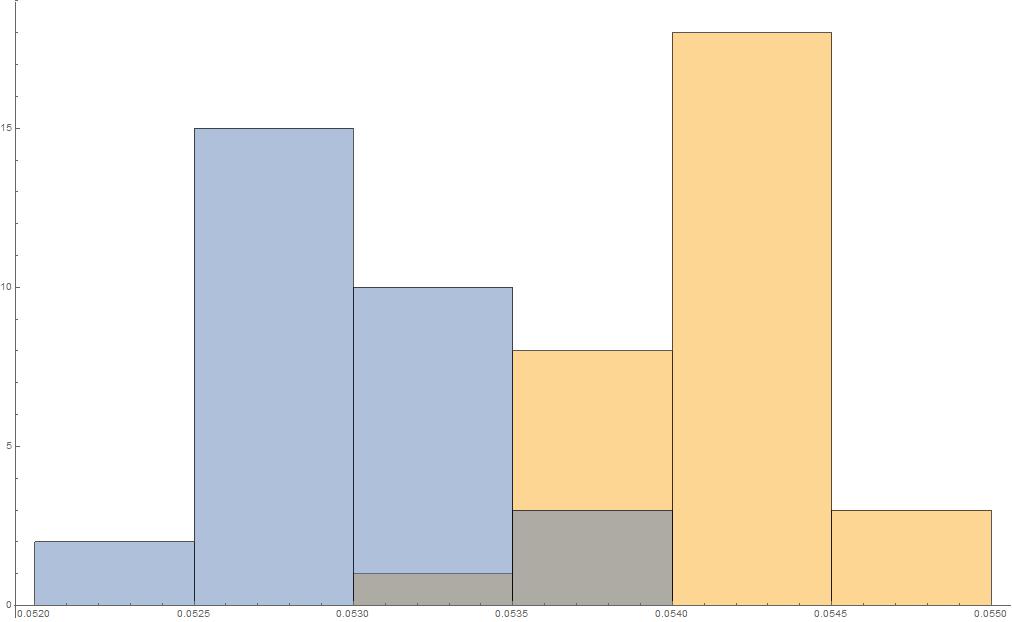
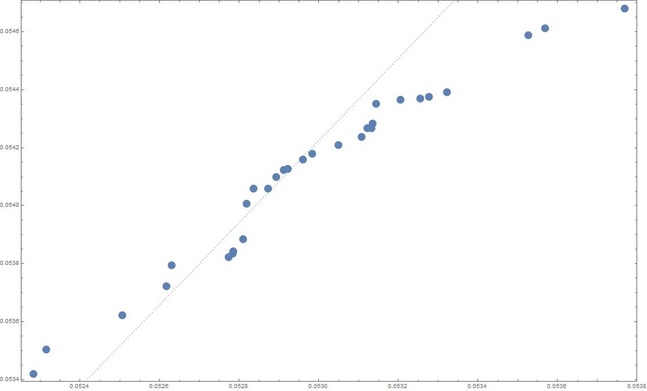
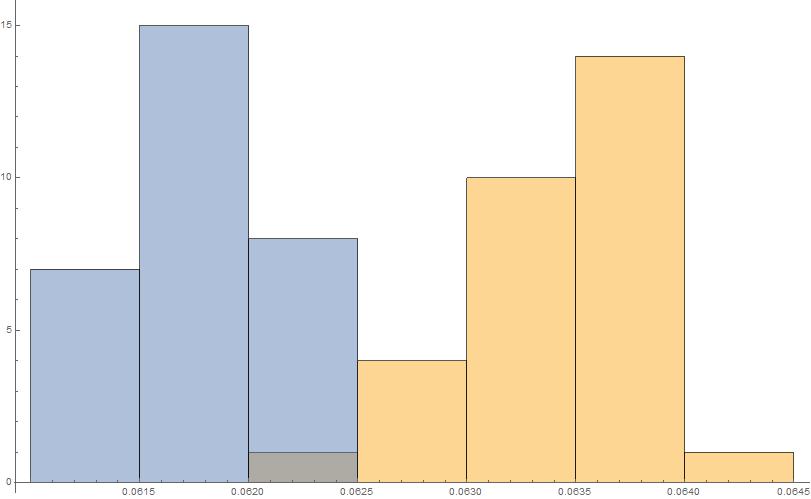
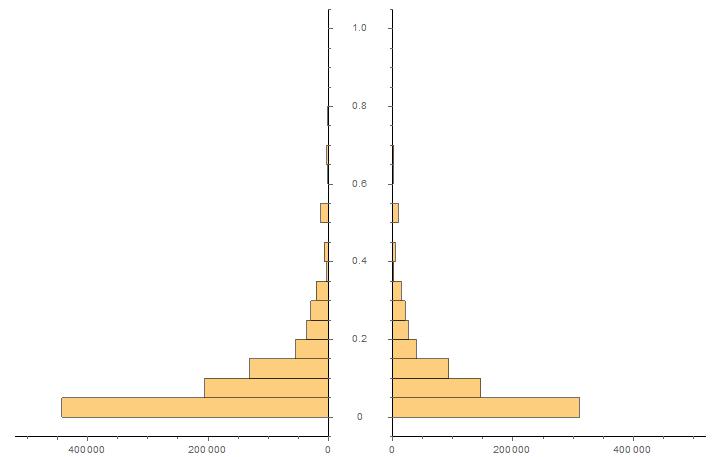
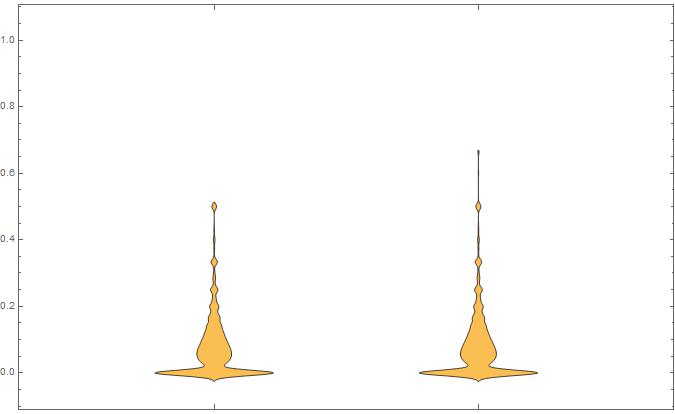
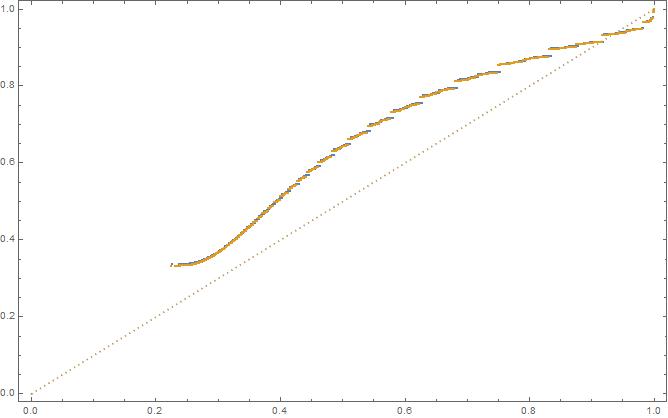
 RSS Feed
RSS Feed